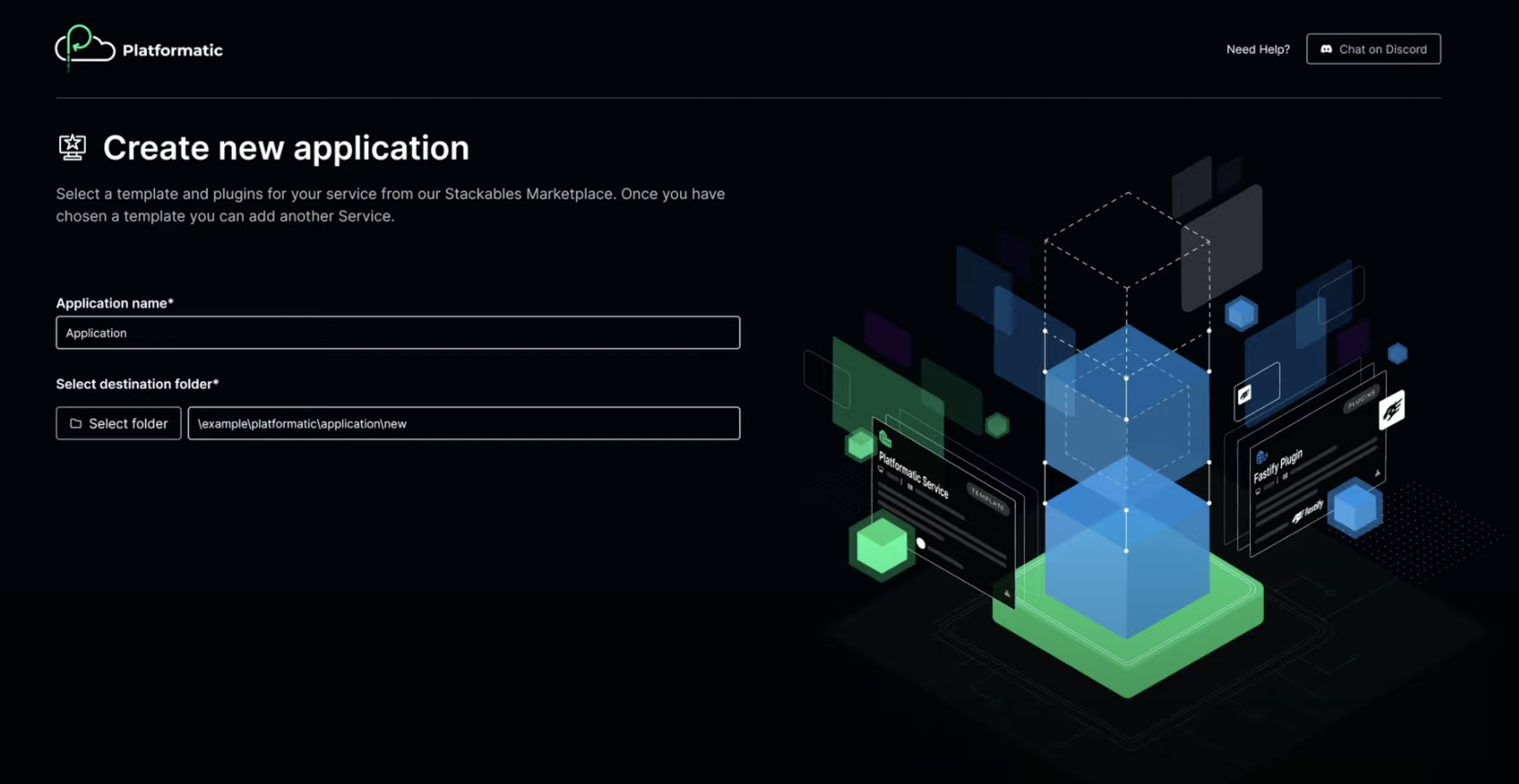Welcome to the Future of Backend Development
Platformatic grew out of the need to simplify building modern Node.js and Fastify backends. Today, we're taking it a step further. Brace yourselves for a leap into the future – this launch is set to redefine how you envision, compose, and evolve your backend architecture.
Meraki
Developers often find themselves recreating the wheel, building the same services repeatedly. Additionally, managing outdated starter kits and templates can be a logistical nightmare, hindering efficiency.
How can we fix this?
Today we are introducing Meraki, a desktop application you can install to build and manage composable monoliths by combining different services run within Platformatic runtime.
Download the app, select your templates (stackables), add your plugins and services, and generate!
What comes next?
In the coming weeks, we will be introducing a marketplace for reusing, composing, and publishing microservices and templates. This Stackables Marketplace will allow you to encapsulate templates into augmented npm modules, and discover and combine new stackables effortlessly.

Multi-Version Support
API versioning has traditionally involved lengthy manual processes, often leading to code duplication and maintenance challenges. Shipping breaking changes has become a high-stakes endeavor that often leads to disruptive outages.
How can we fix this?
Earlier this year, we introduced our Breaking Change Detector, allowing users to analyze deployment risks and identify what might break and its likelihood. As enterprises move faster and incorporate a growing number of integrations, we realized that we needed to go further and help stop breaking changes entirely.
Today, we are expanding on this with our Multi-Version Support. With a blend of algorithms and AI, we streamline the addition of new versions. This ensures a smooth, automated process for shipping multiple versions effortlessly.
How does it work?
With multi-version support, we allow you to quickly add versioning to your app. Now, you can wrap any microservice, support multiple versions simultaneously, and leverage AI to eliminate tedious boilerplate code.
GraphQL Composition
In the past, composing multiple GraphQL services into one has been challenging, requiring services to be aware of each other. Adding third-party services was often a cumbersome task.
How can we fix this?
We are introducing a revolutionary new composer facilitating the composition of GraphQL services without the need for them to be aware of each other. Similar to our OpenAPI composer, our GraphQL Composer offer a fast way to compose APIs from your own or external services.
How does it work?
Our GraphQL composition offers a groundbreaking approach to service integration, especially when compared to traditional federation models. Unlike the traditional federation model, our GraphQL composition doesn’t require services to be aware of one another, and allows for a more loosely-coupled architecture as well as simpler third-party service integration.
Breaking Change Detector…
for everyone, everywhere
Identifying breaking changes in GraphQL and brownfield setups has long been challenging.
In September, we introduced the Breaking Change Detector (BCD), allowing you to analyze potential deployment risks, identify what might break, and the likelihood of breaking changes. When BCD launched, we started with REST and OpenAPI compatibility. Today, we are pleased to cater to the large group of organizations using GraphQL too!
How can we fix this?
Our Breaking Change Detector now supports OpenAPI and GraphQL. You can now detect breaking changes within your GraphQL schema. Our new support for brownfield setups also allows you to use the Breaking Change Detector with Java, .net, and Express microservices.
Want to talk to us about using our new features?